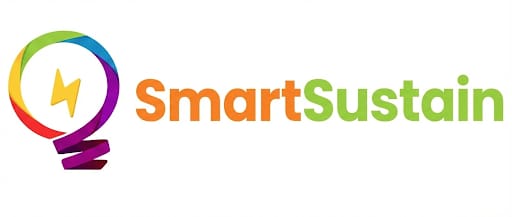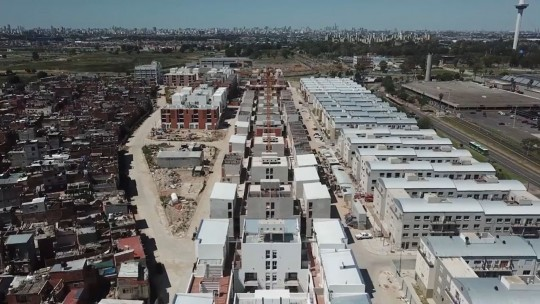Transformative Urban Coalitions, as a project to develop strategies and effectively reduce emissions.
Author: Mobin Varghese Thomas
Reference: World Resources Institute (WRI)
The present-day world is deeply affected by various challenges like extreme heat waves, water crisis, deteriorating natural assets and air pollution. It is also studied that cities are responsible for about 75% of global carbon emissions. As expected, these instances can adversely affect the quality of life and place severe risk factors on the infrastructure.
The alternatives that have arisen as an immediate response to these issues are alternative construction techniques and better public transport. Though these alternatives can provide temporary relief, it is far from attaining a large-scale relief and cannot bring about a transformative change.
For a long-lasting and far-reaching response to the issues that affect the climatic conditions, there has to be a perspective that aims to transform cities into sustainable cities. The cities have to streamline their existing political, social and technological systems to reinforce high-carbon, resource-intensive urbanization. This process is rather elaborate and requires the constant participation of all the stakeholders from individuals to the government.
The guiding principle of the Transformative Urban Coalitions project is to focus the urban transformation around decarbonization, social justice and quality of life. The ambitious project is funded by the German Federal Ministry for Environment, Nature Conservation and Nuclear Safety under its International Climate Initiative and aims to transform urban structures and the values associated with it. These intentions are achieved by influencing the mindsets of the urban citizens and leaders and also by developing new urban strategies.
Various organisations have joined hands to work closely with the native partners to develop and establish fresh models of coalition building and governance through five ‘Urban Labs’ in Argentina, Brazil and Mexico. The organisations involved are WRI, the United Nations University – Institute for Environment and Human Security (UNU – EHS), International Institute for Environment and Development (IIED) and German Development Institute (DIE).
A number of communication techniques and mass media are used to effectively convey the importance of sustainability. The project aims to influence the audience through the means of film and art, as transformative research, communication strategies and capacity building activities are essential for its success Thereby, circulating these models around the world to build a society centred around sustainability.
Image credit: Instituto de la Vivienda de la Ciudad
Reference: World Resources Institute (WRI)














Oregon State is ranked within the prime five for online education with U.S.
Our MBA program has been ranked among the many Top 50 Best
Online MBA Programs within the nation for 2021 by The Princeton Review.
Additionally, we’re in the midst of some key
initiatives that I hope to apply these instruments to.
Learn in regards to the steps to apply for the post-baccalaureate professional enterprise certificates.
For example, our prompt “what-if” analysis is based on real-time actuals and business
drivers.
The Master of Science in Technology and Innovation Management is a
30-credit program comprised of 12 core credit, 15 specialization credits
and 3 capstone credit.
When setting targets and goals, make sure they’re measurable and practical.
These are primarily communication and collaboration platforms
corresponding to Microsoft Teams, Zoom, Miro, Mural, HowSpace, and so forth.
The onset of big knowledge has changed what you can gain from the environmental scan.
Explore inspiring tales from our entrepreneurial alumni, and learn more
about how we assist put together you for all times after commencement.
Our assessments foster self-insight and spark new levels of
innovation…
Elaborate planning-and-control methods lull executives into believing the surroundings is extra predictable than it’s.
Creately for Software Teams Design great merchandise on a collaborative canvas, run agile tasks and go from characteristic
idea to launch.
The programs on this certificate program are required to be completed in the
order that they appear.
Create products and services that resonate together with your
audience by understanding and making use of human-centered design.
BMI Pattern Cards is a good instance for the sort of analogy playing cards used to enhance creativity during
an innovation process.
Wanting to be extra artistic and revolutionary but not taking any motion won’t develop
this magically.
Business Process Management Optimize all your corporation processes on a single
related visible workspace.
Such platforms join remote and hybrid groups and may make innovation processes even more effective and agile.
So the place do you look to seek out the design principles for constructing a extremely adaptable organization?
Therefore, the need arose to open the black box and explore its inside.
Hello there! I could have sworn I’ve visited your blog
before but after going through many of the posts I
realized it’s new to me. Nonetheless, I’m certainly pleased I discovered it and I’ll be book-marking it and checking back frequently!
Hey there! This is my first visit to your blog!
We are a group of volunteers and starting a new initiative in a community in the same niche.
Your blog provided us useful information to work on. You have done a wonderful job!
Hello! I know this is kinda off topic but I was wondering
if you knew where I could find a captcha plugin for my comment form?
I’m using the same blog platform as yours and I’m having difficulty finding
one? Thanks a lot!
Hello exceptional website! Does running a blog like this take a large
amount of work? I have absolutely no understanding of coding however I was hoping to start
my own blog soon. Anyway, should you have
any ideas or techniques for new blog owners please share.
I know this is off subject however I simply had to ask. Cheers!
This site was… how do I say it? Relevant!! Finally I have found something
that helped me. Many thanks!
Wow, wonderful blog layout! How long have you been blogging for?
you made blogging look easy. The overall look of
your web site is excellent, as well as the content!
It’s perfect time to make some plans for the future and it is time to
be happy. I have read this post and if I could I want to suggest you few interesting things or advice.
Perhaps you can write next articles referring to this article.
I wish to read even more things about it!
Magnificent goods from you, man. I’ve understand your stuff previous to
and you are just extremely great. I actually
like what you’ve acquired here, certainly like what you’re saying and
the way in which you say it. You make it entertaining and
you still take care of to keep it smart. I cant wait to
read much more from you. This is actually a wonderful site.
Great post. I was checking constantly this blog and I’m impressed!
Very useful info particularly the last part 🙂 I care for such info a lot.
I was looking for this particular info for
a very long time. Thank you and good luck.
There are two school administrators for the Graduate Certificate in Healthcare Innovation Management.
Teams who are all the time learning keep sharp
minds and may identify alternatives to innovate more readily.
The learn-at-your-own-pace format suited my busyness, but extra importantly, Darin took my online enrollment personally.
Each course consists of on-line lecture movies, self-paced assignments and a final
exam.
Initiative-Based Scenario Planning includes incorporating different units of initiatives together into a composite plan or technique.
The course will be particularly helpful for those excited about product/brand management, management consulting,
and entrepreneurship.
Apply change models to varied organizations and establish how leaders ought to lead change efforts.
The candidate should obtain approval from an acceptable faculty member to supervise the
paper before registering for this course.
Howdy! I could have sworn I’ve been to this blog before but after browsing through some of
the post I realized it’s new to me. Nonetheless, I’m definitely delighted I found it and
I’ll be book-marking and checking back often!
It’s going to be finish of mine day, however before end I am reading this great piece of writing to improve my experience.
I needed to thank you for this very good read!!
I certainly loved every bit of it. I have got you saved
as a favorite to look at new things you post…
Wow, marvelous blog layout! How long have you been blogging
for? you made blogging look easy. The whole look of your website is fantastic,
as smartly as the content material!
This excellent website definitely has all the information and
facts I wanted concerning this subject and didn’t know who to
ask.
It’s very straightforward to find out any topic on web as compared to textbooks, as I found this
post at this web page.
This post gives clear idea in support of the new people of blogging, that truly how to do blogging and site-building.
When someone writes an article he/she maintains the idea of
a user in his/her mind that how a user can understand it.
Therefore that’s why this post is perfect. Thanks!
Definitely believe that which you stated. Your favorite justification seemed to be on the
net the simplest thing to be aware of. I say to you, I definitely
get annoyed while people think about worries that they plainly don’t
know about. You managed to hit the nail upon the top as well as defined out the
whole thing without having side-effects , people can take a signal.
Will probably be back to get more. Thanks
I am really impressed with your writing abilities as smartly as with the layout in your blog.
Is that this a paid subject matter or did you customize it yourself?
Either way stay up the excellent quality writing, it is rare to look a great weblog like this one today..
Nice answer back in return of this question with real arguments and explaining all regarding that.
I simply could not go away your web site before suggesting that I extremely enjoyed the usual information an individual provide
to your guests? Is gonna be back regularly in order to investigate cross-check new posts
I am sure this piece of writing has touched all the
internet visitors, its really really good piece of writing on building up new website.
When I initially commented I clicked the “Notify me when new comments are added” checkbox and now each time a
comment is added I get several e-mails with the same
comment. Is there any way you can remove me from that
service? Thanks!
Hi i am kavin, its my first time to commenting anyplace, when i read this
article i thought i could also create comment due to this sensible piece of writing.
Hmm is anyone else having problems with the pictures on this blog loading?
I’m trying to figure out if its a problem on my end or
if it’s the blog. Any responses would be greatly appreciated.
Thanks in support of sharing such a pleasant thinking, paragraph is pleasant,
thats why i have read it fully
After I initially left a comment I appear to have clicked
the -Notify me when new comments are added- checkbox and now
every time a comment is added I receive four emails with the
exact same comment. There has to be a means you can remove me
from that service? Cheers!
I am regular visitor, how are you everybody?
This post posted at this web site is in fact fastidious.
Hi my friend! I wish to say that this post is amazing, nice written and include approximately all important infos.
I would like to peer extra posts like this .
My spouse and I stumbled over here by a different website and thought I might check things out.
I like what I see so now i am following you. Look forward
to looking at your web page for a second time.
Nice blog! Is your theme custom made or did you
download it from somewhere? A theme like yours with a few simple tweeks would really make my blog stand out.
Please let me know where you got your design. Appreciate it
I’m curious to find out what blog system you happen to be
using? I’m experiencing some minor security issues with my
latest site and I would like to find something more safeguarded.
Do you have any solutions?
Paragraph writing is also a excitement, if you know
afterward you can write otherwise it is difficult to write.
Keep on working, great job!
Great blog here! Also your site loads up very fast! What host are you using?
Can I get your affiliate link to your host? I wish my web site loaded up
as fast as yours lol
It purchased TopTier Software, an Israeli firm specialising
in portals, and its sister firm TopManage, which developed small
enterprise software.
You then need to take a glance at the right tool that will be
the proper fit.
We have pleasant, knowledgeable representatives available seven days a week to help you.
Have all changes automatically synchronized with the SAP Business One
software on the back end.
We evolve alongside technology to offer one of the best solutions
in each sector.
However Online50 do not tie you in to using the product along side
our providers.
The topics within the class are precisely the identical
because the self-study certification-relevant topics.
Our SAP Business One implementation process utilises best follow templates.
Using AI to impersonate executives is the newest way for scammers
to steal your organization’s money or wreck its status.
Our trainers are MNC working professionals employed in HCL
Technologies, Birla-soft, TCS, IBM, Sapient, Agilent Technologies,
and so forth.
SAP HANA shops all the information in-memory, in column format, and compressed.
There is little question that SAP HANA job offers the entire job satisfaction with a higher salary range.
Latency is the time length to carry out knowledge replication starting from the supply to
the target system.
Migrate for Anthos Tool to move workloads and existing purposes
to GKE.
This is basically an inventory of firms that offer SAP training.
There isn’t any shock in plenty of skilled opportunities
in this area.
Zenfotec options is an IT training institute in Bangalore.
The method in path of SAP certification in Europe is very comparable to
the North America.
This certification covers the fundamental functionality within the C/4HANA suite
involved with Lead to Cash.
Using SAP Business One as the usual for subsidiary operations permits a bigger enterprise
to handle all its locations with one system.
It is designed to help the business grow by managing every side of a company’s activities from
gross sales and customer relationships to financials and operations.
Helps students to take knowledge of advanced technical ideas.
SAP coaching is available as “online live training”
or “onsite stay training”.
The E_HANAAW_14 apply take a look at papers are giving the methods for passing the SAP
Certified Development Specialist exams.
The group has several years of relevant trade expertise
that makes them subject matter consultants.
Teaching mentors are superb as they have strong
knowledge of SAP in varied sorts of initiatives expertise.
Company that gives design and construct companies for you from initial sketches to the final manufacturing.
ICOO Reporting and metrics Establish a balanced scorecard for the ICOO, aligning targets and
KPIs to goals.
Needs to evaluate the security of your connection before proceeding.